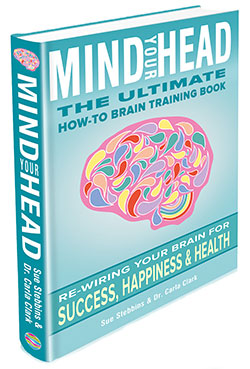Reid on Memory and Personal Identity
Rebecca Copenhaver
Page 5
Source: http://plato.stanford.edu/entries/reid-memory-identity/
Reid's second criticism is his most famous and is often referred to as the case of the Brave Officer:
Suppose a brave officer to have been flogged when a boy at school, for robbing an orchard, to have taken a standard from the enemy in his first campaign, and to have been made a general in advanced life: Suppose also, which must be admitted to be possible, that when he took the standard, he was conscious of his having been flogged at school, and that when made a general he was conscious of his taking the standard, but had absolutely lost the consciousness of his flogging.
These things being supposed, it follows, from Mr LOCKE's doctrine, that he who was flogged at school is the same person who took the standard, and that he who took the standard is the same person who was made a general. When it follows, if there be any truth in logic, that the general is the same person with him who was flogged at school. But the general's consciousness does not reach so far back as his flogging, therefore, according to Mr LOCKE's doctrine, he is not the person who was flogged. Therefore the general is, and at the same time is not the same person as him who was flogged at school (Essays, 276).
According to the Memory Theory, personal identity consists in memory; that is, sameness of memory is metaphysically necessary and sufficient for sameness of person. On this account, given that sameness of memory is sufficient for sameness of person, if a person at time tn remembers (episodically) an event that occurred at time t1 then the person at time tn is identical with the person who was witness or agent to the event at time t1. If the brave officer who has just taken the flag of the enemy remembers being beaten at school, then the brave officer is identical with the boy who was beaten. So too, if the general remembers taking the enemy's flag, then the general is identical with the brave officer. If the general is identical with the brave officer, and the brave officer is identical with the boy, then by the transitivity of identity, the general is identical with the boy.
However, on this account, given that sameness of memory is a necessary condition for sameness of person, if a person at time tn does not remember (episodically) an event that occurred at time t1, then the person at time tn cannot be identical with any person who was witness or agent to the event at time t1. If the general cannot remember being beaten at school, he cannot be identical with the boy who was beaten. Thus, the Memory Theory is committed to mutually incompatible theses: that the General is identical with the boy and that he is not.
Reid's third criticism is terminological: he argues that Locke confounds consciousness with memory—elsewhere Reid also argues that Locke confounds consciousness with reflection (Essays, 58). Consciousness and memory are distinct phenomena, according to Reid. The former is directed towards present mental acts and operations, while the latter is directed towards past events to which one was agent or witness. If consciousness could extend to past events, then memory would be redundant (Essays, 277).
According to Reid, memory is neither necessary nor sufficient for personal identity, metaphysically speaking, despite the conceptual and evidential relations memory bears to personal identity. It is not a necessary condition because each us has been agent or witness to many events that we do not now remember. “I may have other good evidence of things which befell me, and which I do not remember: I know who bare me, and suckled me, but I do not remember these events” (Essays, 264). It is not a sufficient condition, for while having an episodic memory of an event entails that one existed at the time of the event remembered, it is not the recollection or the ability to recall that makes one identical with the person who was witness or agent to the event. “It may here be observed…that it is not my remembering any action of mine that makes be to be the person who did it. This remembrance makes me know assuredly that I did it; but I might have done it, though I did not remember it” (Essays, 265). Reid's fourth criticism is that while memory is tied to personal identity conceptually and evidentially, such ties do not entail a metaphysical connection that would license analyzing the latter in terms of the former (Essays, 277).
Reid's final criticism is that the Memory Theory is committed to the absurdity that identity consists in something that has no continued existence (Essays, 278). Reid and Locke agree that memory, consciousness, thought, and other mental operations have no continued existence. They are fleeting and non-continuous. But they also agree that identity, and in particular personal identity, requires a continued existence over time. As Locke puts it, “one thing cannot have two beginnings of Existence, nor two things one beginning” (Locke, Essay, Book II.xxvii.1). But these commitments are jointly inconsistent with the thesis that personal identity consists in memory.
A theory of personal identity is intended to account for how a person remains identical over time. When analyzed in terms of items that are fleeting and non-continuous—ideas, memories, thoughts—identity is reduced to diversity; that is, it is eliminated. By contrast, if one locates personal identity in that which thinks and remembers, and which has a continued, uninterrupted existence, one purchases personal identity at the cost of admitting that the self is a substance. Reid captures Locke on the horns of a dilemma: either the self is a substance, in which case it remains identical over time, or the self is not a substance, in which case there is no personal identity. Reid holds that this dilemma applies with equal force against any reductionist account of personal identity that employs the theory of ideas, for example Hume's bundle theory of the self (Essays, 473–474).
4. Personal Identity as Simple and Unanalyzable
Those familiar with the contemporary literature on personal identity, with its emphasis on the necessary and sufficient conditions under which a person remains identical over time, may wonder: if Reid holds that memory is not the criterion of identity, and if Reid's substance dualism rules out bodily identity as a criterion of personal identity, in what does personal identity consist? Reid's answer is that identity cannot be accounted for in any terms other than itself. This is neither quietism nor epistemic humility on Reid's part. Rather, Reid argues that the nature of personal identity—its simplicity and indivisibility—rules out any reductive account that appeals to a notion other than identity in explaining how a person persists over time.
Reid holds that numerical identity is, strictly speaking, indefinable, but it can be contrasted with other relations, such as diversity, similarity and dissimilarity (Essays, 263). It requires a continued existence over time—a duration—and requires that there be no two beginnings of existence. Because mental states are fleeting and non-continuous they cannot remain identical over time. A mental state may be indistinguishable from a previous mental state, but because mental states do not have a continued existence, no mental state at one time can be numerically identical with another at a different time. As a result, persons cannot be identified with their thoughts, actions or feelings (Essays, 264). However, according to Reid, thoughts, actions, feelings and all other mental operations are had or performed by a subject that has a continued existence and that bears the same relation to all them. The subject is an immaterial substance that thinks, acts and feels. According to Reid, this substantial self has no parts—it is indivisible—which contributes to its resistance to reductive explanation. Reid appeals to Leibniz's notion of a monad to describe the indivisibility of this immaterial, substantial self (Essays, 264).
Though memory is not the metaphysical ground of personal identity, it provides first-personal evidence of it. Reid notes that the evidence we use to make judgments about our own pasts is different from the evidence we use to make judgments about other people and their pasts (Essays 266). Memory justifies first-personal reports about one's own witnessed past, while judgments of qualitative similarity justify third-personal statements about the identities of other persons. I know that I was present at my wedding because I remember being there. I know that the man I live with was at my wedding because he looks like the man I married.
First-personal, memorial reports about one's own past are either true or false: if the memorial experience is a genuine episodic memory, then it is impossible for it to testify falsely concerning one's presence at the event remembered. This aspect of episodic memory reports is often expressed by saying that they are immune to error through misidentification. If the memorial experience testifies falsely concerning one's own presence at the event remembered, then it cannot be an episodic memory. For example, if I have an experience as of having been lost in a shopping mall as a child, but I was never lost, I cannot be said to remember having been lost, strictly speaking. The upshot is that first-personal memorial reports, if they are episodic memory reports, provide certainty concerning one's presence at the event remembered. Because third-personal judgments about the pasts of other persons are based on judgments of qualitative similarity rather than episodic memory, they are never certain; they are only ever more or less well justified (Essays 264–265).
It is important to notice that while Reid uses the term ‘evidence,’ when describing the role that memory plays in first-personal knowledge of one's own past, memory is not used by persons to justify judgments or beliefs about their own pasts. In other words, people do not remember events and then conclude from having remembered them, that it was they who were witness to the events. Rather, memory itself represents one's presence at the event remembered. According to Reid, a memory consists in a conception of an event and a belief, about the event conceived, that it happened to me, where the pronoun is indexed to the person who is represented in the memory as agent or witness. In other words, memory consists in part in a judgment that represents one's presence at the event. Any further judgment, justified by memory, to the effect that I was the person who was there would be superfluous—memory already testifies to my having been there. This is why Reid calls the evidence of memory immediate: first-personal statements about one's own past are memory statements, not statements made on the basis of memory.
Reid's picture is one on which each of us is immediately and justifiably aware of our own past because each of us remembers having been there. This is the moral of the story concerning the logical relationship between the concept of memory and the concept of personal identity. Memories do not make me the same person as the person represented in my memories. Rather, memories allow me to know my own past, immediately and directly.
We Make it Easy to Succeed
Successwaves, Intl.
Brain Based Accelerated Success Audios
 |






